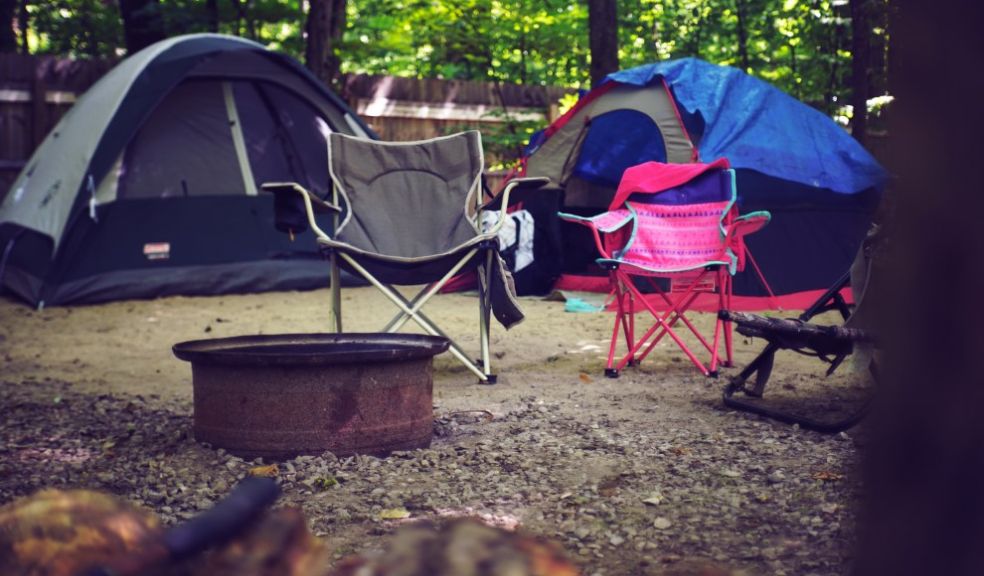
Going on your first camping holiday? Check out these camping hacks for first timers!
Camping Holidays: Camping hacks for first timers
Head of Wanderlust at Camptoo shares his essential guide to planning a camping holiday this summer
Considering your first camping holiday but don’t know where to start? There are a number of physical and mental health benefits that come from enjoying a nature-rich camping trip, as well as the fun that comes from spending time in a unique setting with friends and family, and yet for the uninitiated, planning a camping trip can be overwhelming.
Ed Bassett, Head of Wanderlust at Camptoo – the Airbnb of campervans - says: “With the staycation boom set to continue this year, more and more Brits are opting to travel outside of the traditional summer season. Spring camping trips are proving particularly popular, with bookings for March and April up year-on-year with more Brits clearly keen to try out camping for themselves.
“For first time camper’s easy to get overwhelmed when planning a trip, particularly when it comes to what to pack, but there are a number of measures you can take in advance of your trip to ensure the best camping experience possible. From nailing down your destination, testing your equipment, meal planning and working out what is actually an essential for your trip.
“And whilst it’s important to plan activities and what to pack in line with expected weather forecast, if you’re planning a UK trip, err on the side of caution by ensuring you cover all bases in terms of temperature, wind and rain. After all, the UK isn’t known for its predictable weather.
“By planning in advance testing your equipment, pre-preparing food and packing efficiently, you can ensure a hassle-free camping experience, enabling you to enjoy being out in nature, spending time with loved ones and the host of other benefits that camping has to offer.
“And just remember – the key to a great camping trip is always in the preparation.”
Whether you’re opting for a campervan or pitching up in a tent, read on for Ed’s top camping hacks for first timers…
Decide on your destination
Make sure to research your destination and campsite ahead of travel – simply hoping to turn up and pitch your tent wherever you see fit won’t make for the most relaxing start to your trip, especially if travelling in the peak summer season.
If you’re visiting a campsite, its vital to book ahead to avoid disappointment. Make sure to review the on-site amenities, whether it's child and/or pet friendly, local beauty spots, walks and attractions, so you can plan your itinerary accordingly. You can use pitchup.com to search for campsites and holiday parks to suit all types of camping and ensure availability for your preferred dates.
It’s worth noting that there are only a select number of locations in which it’s legal to wild camp in England – some national parks have designated areas (sometimes called backpack camping). If you’re travelling to Wales, the Brecon Beacons National Park Authority has a list of local farms which allow wild camping. However, if it is a wild camping experience you’re after head to Scotland where it’s legal to pitch up on unenclosed land, including in the Cairngorms, Loch Lomond and the Trossachs national parks- however you may need to apply for a permit beforehand. This useful Outdoor Access Guide to Scotland includes advice on how to camp responsibly and is well worth a read, whether you are wild camping in Scotland or elsewhere.
Invest in the essentials
It’s natural to want to save money on your camping trip, and whilst its not imperative to spend hundreds of pounds on the newest high-tech gear, don’t cut corners when purchasing necessities such as sleeping bags and tents.
Opt for a waterproof, double layered tent to avoid a wet and miserable camping trip. Also, consider how much space you’ll need in your tent and opt for the right size accordingly. Will the whole family be sharing? Will you need extra space for all your luggage? These are all important considerations when choosing the right tent for your trip.
When it comes to a sleeping bag, check the temperature rating before purchase - the rating required will be dependent on where you’ll be camping and what temperature you’ll be comfortable sleeping in. If you’re camping in higher climes, for example, you’ll want a thicker, more insulated sleeping bag to account for cooler temperatures.
And make sure to double check your equipment is all in good working order before setting off – including practising pitching your tent.
Prep food in advance
It’s useful to create a meal plan ahead of your trip, particularly for those embarking on a more remote camping trip who won’t have immediate access to any food shops or restaurants. Create a meal plan for every day, being mindful of expiry dates and ease of storage.
You can also save yourself lots of time and energy by prepping food in advance – soups, pasta dishes, vegetable curries that can be safely stored in Tupperware, and reheated when needed are ideal.
Alternatively consider dried sachets to which you simply add boiling water – the perfect option for those who want some warming meals readily available. This is also a great space and weight saving solution for those on the move.
And don’t forget to pack plenty of snacks to keep energy levels topped up throughout the day, think dried fruit and nuts, dark chocolate, trail mix and protein bars. And if any food is packaged in cardboard packaging, consider moving it to waterproof containers to ensure it doesn’t get damaged by rain, after all no one wants soggy snacks.
It’s better to be over prepared than under
If you’re a camping newbie, you don’t want to be caught out by not having everything you need – there’s nothing worse than being miles from home and realising you’ve run out of dry socks or are struggling with the local mozzies.
Prepare for any sudden changes in the weather by packing for all manner of weather conditions – simple things like a waterproof jacket, spare socks and sun cream can be the difference between an enjoyable camping experience, and one to forget.
You should also anticipate much cooler temperatures at night, even during the height of summer. Prepare for this by investing in a high-quality sleeping bag, packing extra thermal layers and even a hot water bottle or heat pad to ensure the cosiest night’s sleep possible.
To find out more and book a van for your next road trip, visit www.camptoo.co.uk.
















